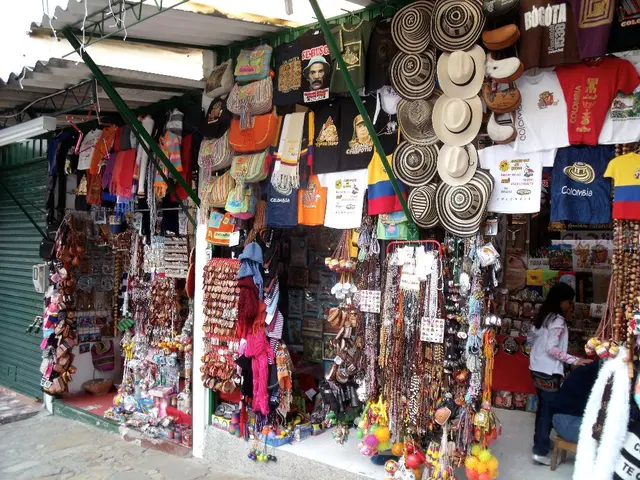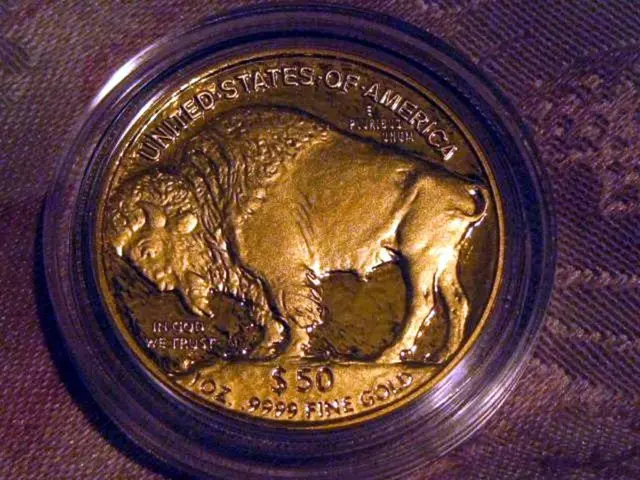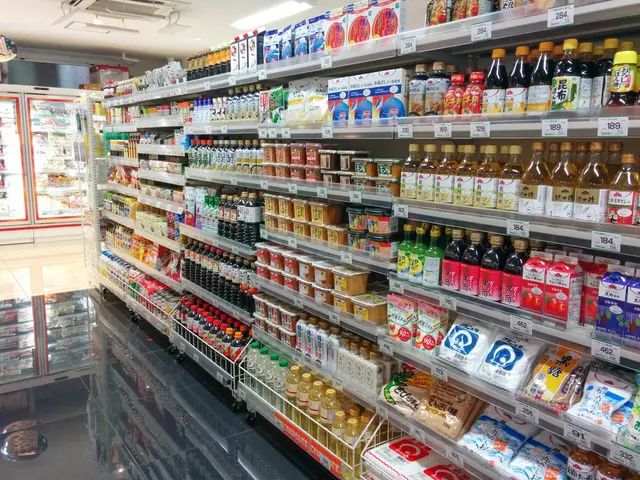Merkel's Gas Gambit: Unveiling the Gazprom Deal Secrets
Gazprom Agreement Nodded by Merkel Privately
Looks like the ol' Merkel administration ain't all roses and sunshine, mate. Newly leaked files exposed the behind-the-scenes manipulations that led to the sale of German gas storage facilities to Gazprom, all while dodging internal warnings and brushing off the Crimea annexation. And you won't believe what came to light!
The old Chancellor, Angela Merkel, didn't bat an eye when it came to the Gazprom deal, even with those internal alarm bells ringing. This nasty revelation comes courtesy of documents from the Chancellery, which the "Süddeutsche Zeitung" drove off with, using the Freedom of Information Act. Those docs reveal a sneaky, step-by-step plan orchestrated by Merkel for the project, labeled a symbol of ill-advised German Russia policy. In the autumn and winter of 2021/2022, just before Russia's energy crisis kicked in, the gas storage levels stooped to alarmingly low levels.
Chancellery Memo To Merkel: On September 2, 2015, Merkel got a written heads-up that a "swap" was in the works as part of BASF/Wintershall's involvement in the Nord Stream 2 pipeline. Gazprom would snaffle a piece of Germany's gas trade, and Wintershall, a BASF subsidiary, would get a piece of gas fields in West Siberia. It turns out that SPD Economics Minister Sigmar Gabriel gave BASF the green light, claiming, "No energy policy concerns." The Chancellery admitted it didn't have a legal leg to stand on to block the deal, but they weren't too fussed about the risks: Gazprom would become a direct supplier for German utilities, regional gas suppliers, companies, and power plants. And if that ain't enough to breathe fire into the belly of vodka-swilling Putin, the Chancellery noted, "Through control of important gas storage (filling, functionality), Gazprom will be directly responsible for the supply security of customers."
The Chancellery also cooked up some sweet-sounding arguments to appease the expected bust-ups with Poland, Ukraine, and the Baltic states. The gas storage deal didn't violate any Russia sanctions, and the Foreign Trade and Payments Act couldn't be twisted to halt the deal, so long as it was handled by the German Gazprom subsidiary. But these hiccups wouldn't be much of a problem if Merkel's crew played damage control and talked the matter over with their partners. "We should therefore actively and transparently communicate the background (lack of legal basis, business decision) to these partners," the memo read. Merkel jotted a note in the margin, "Yeah, that looks like a plan."
Merkel's government had been playing footsy with Nord Stream 2 behind the scenes, all the while acting like a dolled-up damsel unaffected by the hoo-ha. The Chancellery forked over 63 documents in response to the SZ's request, originally made in 2024. They refused at first but changed their minds after a good ol' fashioned tussle.
Nord Stream 2 Operator Allowed to Seek InvestorsA report Merkel churned out on July 16, 2015, lays bare how much the German government wanted a piece of Nord Stream 2. Merkel's gang argued that the project was a boon for Europe's energy security, claiming that sheltering behind a supposed neutral stance hid a secret love affair with the deal. Merkel showed her support loud and clear, quipping, "Germany and Europe should welcome Gazprom's current push for a 3rd/4th Nord Stream line."
The risk of dependency was scoffed at, and officials practically cooed over poor Gazprom, bogged down by dwindling gas business. The solution, they thought, was Nord Stream 2: three and four pipes were the key to saving Gazprom from certain doom. The Ukraine's fears of profiting less from gas transit were dismissed as harmless fears, and Germany was likely to lose a chunk of its assets if the deal didn't fly. Merkel and her crew couldn't afford to be against Nord Stream 3/4.
- Gazprom
- Angela Merkel
- Crimea
- Attack on Ukraine
- The documents reveal Angela Merkel's involvement in a intricate plan to sell a portion of Germany's gas trade to Gazprom, disregarding internal warnings about the Crimea annexation and potential risks.
- The gas trade deal between Merkel's administration and Gazprom, if successful, would establish Gazprom as a direct supplier for various German utilities, regional gas suppliers, companies, and power plants, impacting the finance and energy sectors of Germany.
- Despite concerns around potential influence on industries such as energy and finance, as well as political implications in Europe related to the Crimea annexation and the attack on Ukraine, Merkel's administration continued to support the Nord Stream 2 project, viewing it as a crucial solution to Gazprom's dwindling gas business.








